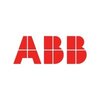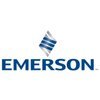Filter interviews by
Clear (1)
Global Automation Financial Analyst Interview Questions and Answers
Global Automation Financial Analyst Interview Experiences
2 interviews found
I applied via Campus Placement and was interviewed before Aug 2022. There were 3 interview rounds.
Interview Preparation Tips
Top trending discussions






Interview questions from similar companies

I applied via Naukri.com and was interviewed in Aug 2020. There were 4 interview rounds.
Interview Questionnaire
3 Questions
- Q1. What is your total experience
- Q2. What is the reason for change
- Q3. What are your expectations
Interview Preparation Tips

Interview Preparation Tips

I applied via LinkedIn and was interviewed before Aug 2022. There were 3 interview rounds.
Interview Preparation Tips

I appeared for an interview in Jan 2022.
Interview Preparation Tips
Get referred by someone you ll get call from HR within few days.

I applied via Company Website and was interviewed in Apr 2020. There were 4 interview rounds.
Interview Questionnaire
1 Question
- Q1. Asking about your previous organization work if you are experienced and also ask basic conceptual question regarding your profile in previous organization
Interview Preparation Tips

I applied via Recruitment Consultant and was interviewed before Jul 2020. There were 4 interview rounds.
Interview Questionnaire
1 Question
- Q1. Revenue recognition concept, Inventory writedown, journal entries on mergers and acquisitions, Few Accounting standards, Forex impact calculation in budgeting sales/ Revenues, productivity concept
Interview Preparation Tips

I applied via LinkedIn and was interviewed in Jul 2024. There was 1 interview round.

Interview Preparation Tips
Global Automation Interview FAQs
Recently Viewed
Tell us how to improve this page.
Interview Questions for Popular Designations
- Financial Accountant Interview Questions
- Financial Associate Interview Questions
- Senior Financial Analyst Interview Questions
- Financial Controller Interview Questions
- Financial Consultant Interview Questions
- Cheif Financial Officer Interview Questions
- Financial Planning Analyst Interview Questions
- Senior Financial Accountant Interview Questions
- Show more
Global Automation Financial Analyst Interview Process
based on 3 interviews
Interview experience
Interview Questions from Similar Companies
Fast track your campus placements
Global Automation Financial Analyst Reviews and Ratings
based on 5 reviews
Rating in categories
|
Financial Analyst
35
salaries
| ₹2 L/yr - ₹9.6 L/yr |
|
Software Engineer
16
salaries
| ₹4.5 L/yr - ₹7 L/yr |
|
Software Developer
9
salaries
| ₹3.8 L/yr - ₹6.7 L/yr |
|
Senior Financial Analyst
6
salaries
| ₹6.2 L/yr - ₹11.1 L/yr |
|
Service Engineer
5
salaries
| ₹1.2 L/yr - ₹2.4 L/yr |

Siemens

ABB

Schneider Electric

Honeywell Automation
- Home >
- Interviews >
- Global Automation Interview Questions >
- Global Automation Financial Analyst Interview Questions
















